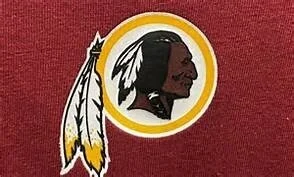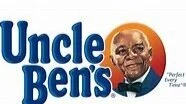After decades of criticism that they perpetuated racial stereotypes, owners of famous trademarks are taking steps to bring changes and even replace them! In particular:
- The Washington Redskins® (American football team and licensed merchandise)[i]
- Aunt Jemima® (in particular pancake mixes and syrups) [ii]
- Uncle Ben’s® (for rice) [iii]
- Eskimo pie ®(ice cream confections) [iv]
It must be remembered that these well-known brands each have a market value of many millions of dollars. Clearly it is not with happy hearts that their owners have decided to make such important changes. After years of hesitation, these companies seem to have been prompted by the unprecedented strength of the “Black Lives Matter” movement, that resulted from the criminal assassination of George Floyd in the city of Minneapolis, United States. Not only must these brand owners contend with pressure from their consumers, but in the case of the Washington Redskins, much demand for change has come from corporate sponsors 5.
LEGAL ISSUES
Is there legal recourse available to force the owner of a possibly racially prejudicial brand to cease using it or to have it significantly changed? Freedom of expression in Canada is protected as a "fundamental freedom" by Section 2 of the Canadian Charter of Rights and Freedoms. The Charter also permits the government to enforce "reasonable" limits such as hate speech, obscenity, and defamation as being categories of restricted speech in Canada. Hate speech can be defined as "public speech that expresses hate or encourages violence towards a person or group based on something such as race. It is also thought to include communications of animosity or disparagement of an individual or a group on account of a group characteristic such as race, colour, or national origin. The Criminal Code contains a provision against hate crimes (s. 319). As for the word “obscene”, it is generally defined as something that is offensive or disgusting by accepted standards of morality or decency; or offensive to the senses.
Hence, would it be possible to argue that the term “REDSKINS” is or has become at least obscene under current social and moral standards?
The question can be extended to Trademark Law. Paragraph 9(1)(j) of the Canadian Trademarks Act prohibits the adoption of any trademark consisting of, or so nearly resembling as to be likely to be mistaken for, any scandalous, obscene or immoral word or device. In examining a trademark in respect of paragraph 9(1) (j) Canadian trademark examiners may be guided by the following:
A scandalous word or design is one which is offensive to the public or individual sense of propriety or morality, or is a slur on nationality and is generally regarded as offensive. It is generally defined as causing general outrage or indignation.
A word is obscene if marked by violations of accepted language inhibitions or regarded as taboo in polite usage. This word “obscene” is generally defined as something that is offensive or disgusting by accepted standards of morality or decency; or offensive to the senses.
A word or design is immoral when it is in conflict with generally or traditionally held moral principles, and generally defined as not conforming to accepted standard of morality.
In order to determine if a trademark is scandalous, obscene or immoral, examiners must determine whether the trademark would offend the feelings or sensibilities of a not insignificant segment of the public.
In the case of Miss Universe, Inc. v. Bohna (1991), 36 C.P.R. (3d) 76 (T.M.O.B.) [affirmed (1992) 43 C.P.R. (3d) 462 (F.C), and reversed for confusion (1994), 58 C.P.R. (3d) 381 (F.C.A)] the judge states at 82 of the decision:
I must say that at present we live in what is commonly called a “permissive age” were previously accepted moral standards are undergoing change. The difficulty is to determine what are acceptable standards today and what would still be considered immoral, scandalous, or obscene by some people by no means few in number.
Hence, could it be argued that the word “Redskins” is or has become scandalous or immoral IN Canada pursuant to Section 9(1)(j) of the T.A.?
While the legal questions are interesting, the fact remains that it is consumers' perception of a brand that is the main force behind the future changes of the well-known brands named above.
FUTURE BRANDS
What will the above listed famous brands be replaced with? Hard to say at the moment. What is certain is that the advertising, marketing, and legal costs will be enormous in order to ensure the best possible transition. The changes will require: 1) Choosing an appealing brand taking into account foreign languages where the brands are used; 2) Making sure the new brand is not confusing with any existing trademarks. Thus the need to conduct availability searches in every jurisdiction where the goods are sold; 3) Making sure the various domain names are available; 4) Proceed to register the trademark in every relevant jurisdiction; and 5) Launch a lengthy and surely expensive marketing and advertising campaign.
For future brand owners, this situation should serve as a reminder to direct their investments in brands that are respectful of dominant social and moral values.
SOURCES:
[i] https://www.washingtonpost.com/sports/2020/07/13/redskins-change-name-announcement/
[ii] https://www.cnn.com/2020/06/17/business/aunt-jemima-logo-change/index.html
[iii] https://www.msn.com/en-us/news/us/uncle-bens-changing-logo-away-from-racist-imagery/ar-BB15CPTr
[iv] https://www.cbsnews.com/news/dreyers-retires-derogatory-eskimo-pie-name-99-years/
[v] https://www.washingtonpost.com/local/corporate-money-black-lives-matter-protests-and-elites-opinion-drive-redskins-name-change/2020/07/12/6103a6de-c2c6-11ea-b178-bb7b05b94af1_story.html




